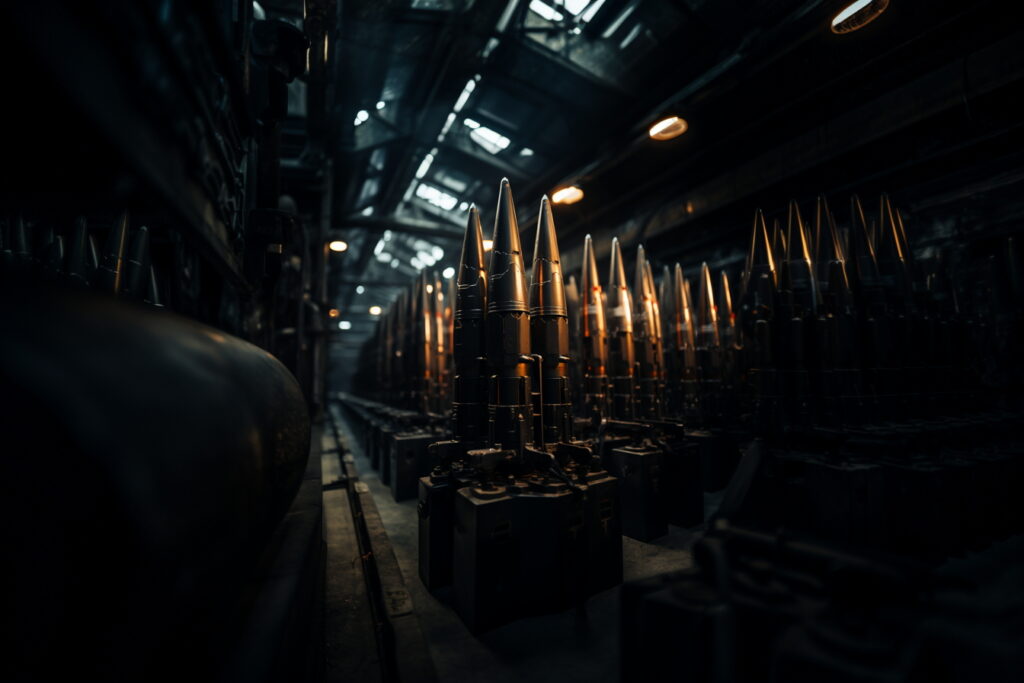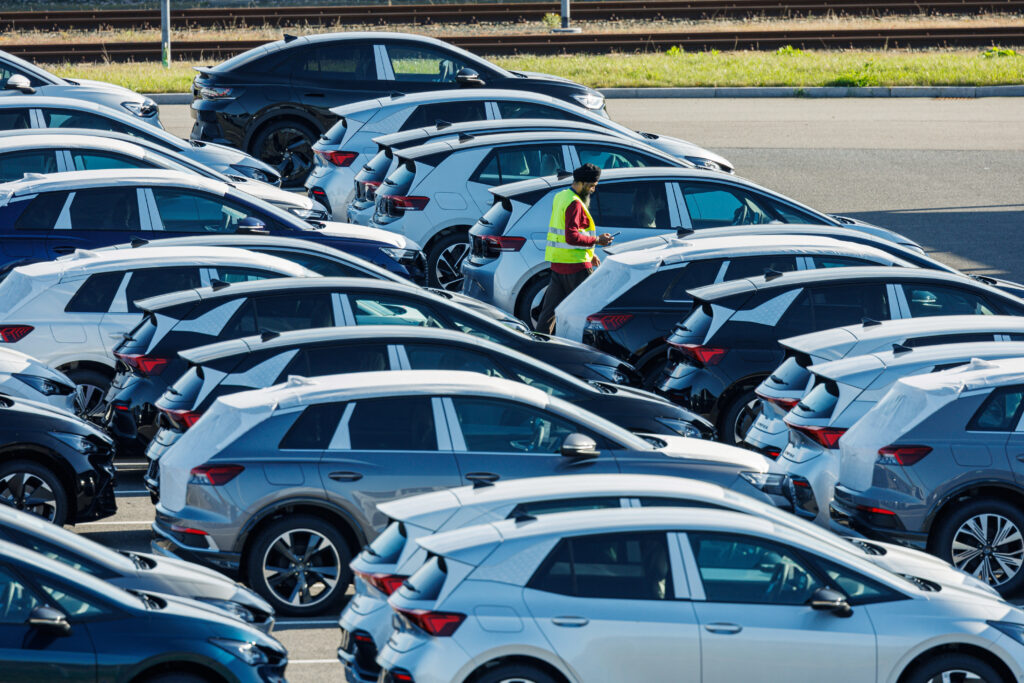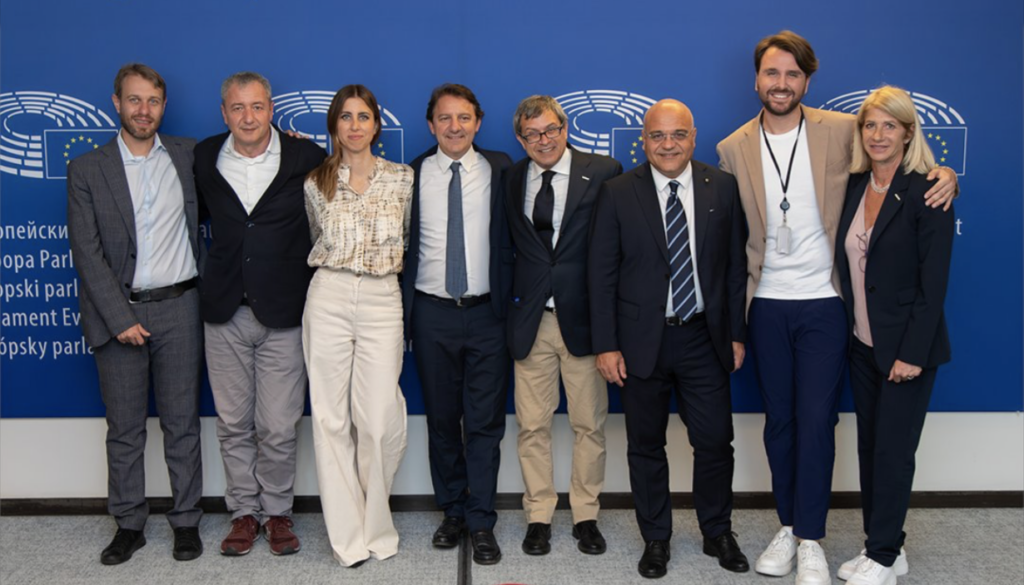Brussels – From Europe’s capital, Giuseppe Conte, today (Dec. 10), presented his plan to create an EU fund to save the automotive sector and revive the industrial competitiveness of the 27 member states. The proposal — which the 5-Star Movement (M5S) leader presented to reporters while speaking alongside the delegation head to the European Parliament, Pasquale Tridico, and MEP Giuseppe Antoci — envisages diverting the 500 billion euros designated to fund the so-called defense fund to an alternative instrument that would give new impetus to the green deal, starting with sustainable mobility.
Against the “military transition”
The M5S, in opposition in both Italy and Europe, seeks to counter what it sees as the warlike drift of Ursula von der Leyen‘s second term as head of the EU executive. During a press conference in Brussels, the former prime minister reiterated the need for the EU to give itself “an alternative strategy” to the one it has so far “chosen to follow.” He was referring to military support to Ukraine – described as “a military confrontation with Russia” – which, Conte says, is leading the Union to lose its “political leadership” internationally. He argues that Europe is not involved in diplomatic mediation attempts that should end the war.
The head of the Movement, a former prime minister in two opposed governments (the Yellow-Green and the Yellow-Red), said that the shift from a focus on the Green deal to one on developing the war industry was “one of the reasons that prevented us from supporting the second von der Leyen term.” At the same time, the M5S delegation turned out to be crucial for her appointment in 2019. Instead, “today the Green Deal disappeared” and is being replaced with “a military transition,” Conte explained to reporters, adding that his party is in favor in principle of a common European defense but not to the “rush to rearm” that Brussels seems to be preparing for.

The Automotive and Competitiveness Fund
The M5S, therefore, claims a contrary approach and has sent von der Leyen an open letter signed by all MEPs to introduce a European fund for the automotive sector that is currently “in severe distress,” where to divert those 500 billion on which there has been a lot of talk recently, referring to a new EU defense instrument to be financed through Eurobonds, and on which, moreover, Germany and the Netherlands have already spoken out against.
The M5s delegation proposes to spread that money over two separate budget lines: 200 billion to save Europe’s automotive industry and 300 billion to “make the European production system more competitive in other supply chains,” as also suggested by Mario Draghi in his now-famous report. This second channel should help “anticipate the impact of artificial intelligence and robotics” on the European economy and “accompany the economic and social transition” during the technological transformations underway at this historical stage.
The model to follow for financing a fund of such magnitude should be the SURE program, specified M5S delegation leader Tridico, referring to the fund introduced by the EU Commission to support workers during forced company closures due to the pandemic. The new fund should ensure measures including income support for workers in the sector, reduction of VAT on electric vehicles made in Europe, and a system of tax credits for companies working on the transition to sustainable mobility.

The M5S remains on the left (for now)
Conte stressed that opposing the belligerent tendencies of the second von der Leyen term confirms that the choice to join The Left was the right one for the Movement. With the European Left Group, “we pursue a firm ‘no’ to sending arms to Ukraine,” he claimed, along with opposition “to the dismantling the Green deal.”
A seemingly definitive answer to those who asked whether the M5S delegation still plans alternative alliances in the European Parliament, such as the creation of a new red-brown group together with the Germans of the BSW, the party founded by Sahra Wagenknecht combining traditional positions of the radical left (especially on the economy) and others typical of the far right (e.g., on the management of migration flows). After all, the six-month period of “reciprocal observer status” with which the M5S MEPs joined in their current group is expiring: it seems, therefore, that for the time being –since there are no numbers in the House for alternative placements, on pain of returning to the limbo of the unattached — the left remains the preferred field for Conte and his people.

However, he was keen to clarify that the Movement is “an independent progressive force.” “In Italy, we speak of a progressive area” rather than a center-left camp, as the latter definition merely reiterates the “20th-century right/left dichotomy that does not help clarify the real political confrontation” in the country. He pointed out that in past years, “even left-wing forces have pursued neoliberal policies traditionally associated with more conservative forces.” Against the governing right, whose components have been branded by the lawyer as “reactionary and restorative,” we need “a space for the M5S that does not crush it among the traditional forces of the Italian left” and that allows what used to be the creature of Beppe Grillo to express its “alternative political project” in an articulate manner.
The former premier was also in Brussels to attend an event sponsored by the Left Group on countering mafias and money laundering by cross-border organized crime. Among the distinguished guests, in addition to M5S MEP Antoci, were Internal Affairs Commissioner Magnus Brunner, National anti-mafia Prosecutor Giovanni Melillo, Palermo’s chief anti-mafia prosecutor Maurizio De Lucia, and Italian Ambassador to Belgium Federica Favi.
English version by the Translation Service of Withub
![Andrius Kubilius, commissario per la Difesa e lo spazio, in sottocommissione Sicureza e difesa [Bruxelles, 5 dicembre 2024]](https://www.eunews.it/wp-content/uploads/2024/12/kubilius-he1-350x250.png)







